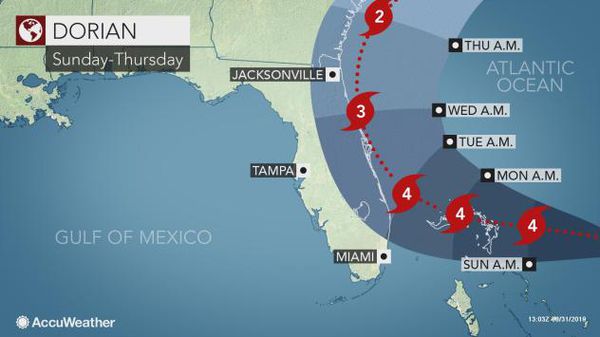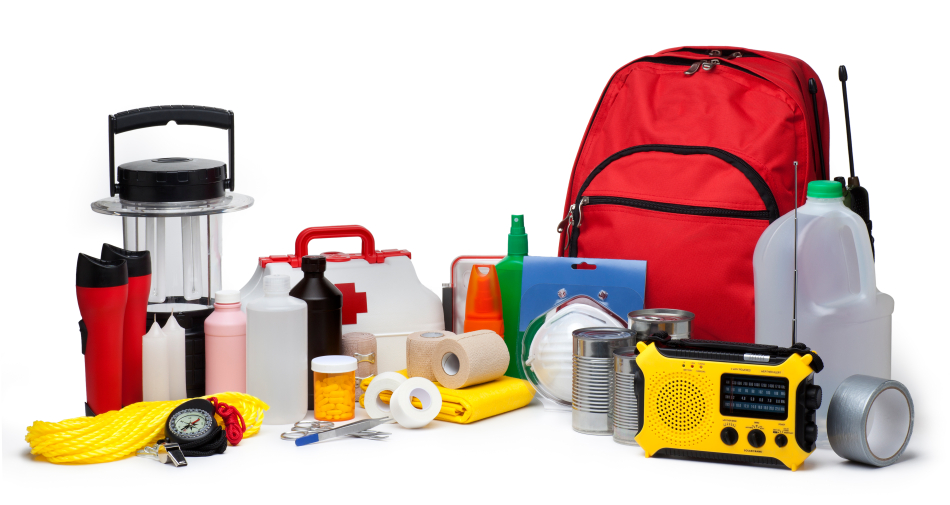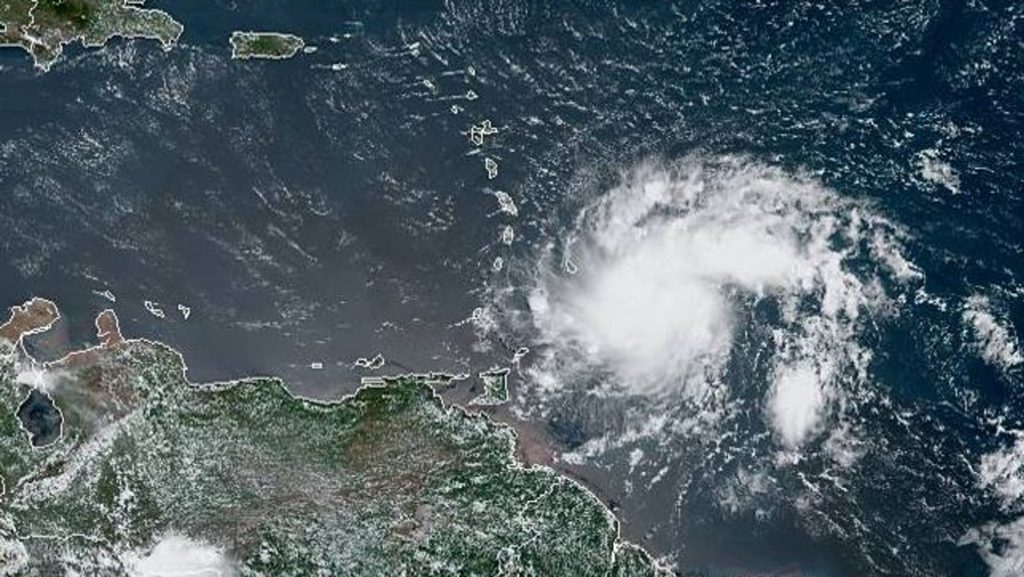Vacationing in the Caribbean or Florida during peak hurricane season – August through October – can be a hit or miss situation in terms of the weather. On the plus side, accommodation and airline deals are easier to come by, but the downside involves the risk of having your trip affected by a catastrophic storm. Most of the time things turn out just fine, but occasionally, they don’t. What can travelers do in those rare circumstances? It’s important to have a good hurricane season travel guide for tips and useful resources with you if the worst happens, but it is also necessary to try to stay calm and think rationally.
Knowing handy travel hacks helps, too. Below, I’ve shared my comprehensive hurricane season travel guide on things to consider when planning a holiday. It includes tips on what to do before, during, and after a storm hits.
Before you go:
Be savvy about your travel dates.
The Atlantic hurricane season runs from June 1 through to November 30th, with late August to October being the peak time for tropical system activity. Picking dates in June, July, early August, and November increases your chances of not having your trip disrupted by a storm.
Select your destination carefully.
If your vacation time is non-negotiable, you might want to consider going south of the active hurricane belt by jetting off to Grenada, Trinidad and Tobago, or the ABC Islands of Aruba, Curacao and Bonaire. Southwest and Central Florida are also less prone to direct hits than the northeast corridor of the US mainland, as are southern countries in Central America like Costa Rica and Panama.
Research hotels’ hurricane policies.
Many properties in hurricane-prone destinations have special ‘act of God’ policies in place, so be sure to ask about their procedures before you reserve a room. Some resorts/hotels/villas may offer full refunds, while others will allow you to rebook at a later date. Remember, it’s very important to confirm those details via email (and not just ask over the phone) in order to have written proof.
Buy travel insurance with a ‘hurricane’ or ‘severe weather’ plan.
Not all insurance policies are created equal, so take the time to carefully read the fine print to see what your coverage actually includes. Items to look for include trip cancellation, trip interruption, travel delays and missed connections. If you want the added security of getting a full refund in the least intrusive circumstances, opt for the extra ‘cancel for any reason’ provision.
Before it hits:
Pay attention to the weather forecasts for information on the approaching tropical system.
Nothing is worse than being unaware or misinformed in a high-pressure situation.
Know what the different classifications mean.
A tropical storm watch is issued when tropical storm conditions (sustained winds of 39 to 73 mph) pose a possible threat within 48 hours, and a storm warning goes out when tropical storm conditions are expected within 36 hours or less. Storm watches and warnings are meant to put you on guard. A hurricane watch is issued when hurricane conditions (winds of 74 miles or higher) are expected within 48 hours. Advisories change to a hurricane warning when those wind speeds (or higher) are expected at 36 hours or less. If a hurricane warning is issued, things are about to get real! Start making preparations for potential landfall, and stay tuned to the radio and/or TV for official weather and evacuation updates.
Heed the hurricane warnings and evacuate as early as you can.
If you decide to fly out, immediately contact your airline to book a seat on their next available flight. If no seats are available, try buying a one-way ticket on another airline. If that’s not an option, you can drive to another location. Rent a car, fill up the gas tank, and research evacuation routes that will take you away from the coastline or further upstate to safety. If you do not have access to a rental vehicle, check with your hotel front desk about their guest transportation arrangements, and ask where they’ll house you if the storm is headed your way.
Prepare a hurricane kit.
If you end up having to ride out the storm in the destination, go to a local store to buy supplies and then pack a bag that is easy to carry. Suggested items include:
Prescription medication, special needs equipment, and infant care items (where applicable).
Important documents such as your passport ID page, driver’s license, and credit cards. Put them in a Ziploc bag (or plastic container) and email copies to family members or close friends in another location in case the originals get lost.
A battery-operated radio and flashlight, with extra batteries.
Toiletries, rainwear, and a change of clothing.
Drinking water, canned goods/non-perishable foods and disposable utensils.
A first aid kit.
Sleeping beds or blankets, sheets and pillows.
Portable power chargers or power packs for your cellphones that are already pre-charged and won’t need a plug to work.
Cash (ATMs and banks may run out of money before the storm and power outages may cause closures or affect machine operations after it hits).
During the storm
• Remain indoors.
• Stay away from windows.
• Find the safest room in your location and hunker down there.
• Don’t use candles for lighting.
• Avoid using electrical appliances.
• Occupy yourself with books, magazines, cards, toys and games that help pass the time and keep you calm.
After the storm
• Listen to local radio stations for official information and instructions.
• Be careful of weakened structures and downed electrical lines.
• Don’t drink the tap water, and only eat foods you are sure are safe.
• Contact your airline to get on the next available flight.
• Call your insurance company to file your claims.
Useful resources
Flight Delay Information – Air Traffic Control System Command Center
Airline Travel Alerts/Flight Interruption Advisories
American Airlines ♦ Air Canada ♦ Alaska Air ♦ Allegiant ♦ Bahamasair ♦ British Airways ♦ Caribbean Airlines ♦ Copa Airlines ♦ Delta ♦ Emirates ♦ JetBlue ♦ Liat ♦ Southwest ♦ Spirit ♦ United ♦ Virgin America ♦ WestJet
_
Have you ever experienced a storm while on vacation? Feel free to share your own tips in the comments section below so I can incorporate them and make this an even more comprehensive hurricane season travel guide.
___________________________________
September 1, 2019 update:
This article was originally published in September 2017. Stay safe, everyone!
___________________________________
Jan 3, 2018 UPDATE:
A few weeks after posting this guide, I was contacted by the leader of a peer group on community safety at the Springfield Library. The participants included a couple of retirees who, though previously unsure around computers, had gotten comfortable enough to conduct some online research to find additional resources that could help families in their area in the event of a natural disaster. The leader asked if I could share some of the links they found with my readers.
Since my parents are also senior citizens, and I know how tentative they too are around computers and technology, this story warmed my heart. Plus, the information is useful, even though not specifically hurricane related. These are a few of the links they shared:
- CDC Guide to Extreme Heat
- Emergency Preparedness for Seniors & the Disabled
- Disaster Prep & Self Storage – What You Need to Know
- Humane Society – Protect Your Pets
So to Janie and Ruth, I say congrats on a job well done, and I encourage you to keep surfing the net!




Great tips! I wish I read this before I was stuck in a room with a hurricane raging outside!
Thanks! I hope everything turned out okay for you after the storm.
I really like it! keep up the great work! well done!